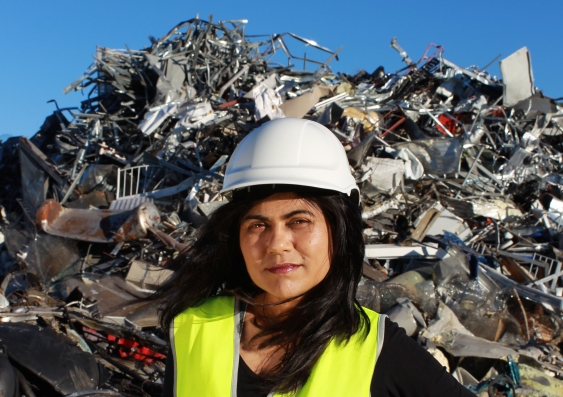The future of manufacturing in Australia is smart, agile and green
Green manufacturing in micro-factories offers an exciting future for regional Australia, writes Veena Sahajwalla.
Green manufacturing in micro-factories offers an exciting future for regional Australia, writes Veena Sahajwalla.

OPINION: Last year, I wrote about the ability of engineers to build Australia into the future by fostering invention and innovation. I still believe it will be engineers who can deliver previously unimaginable solutions, like green manufacturing, which is an area that will transform the manufacturing industry.
Australian industries need the flexibility, insight and foresight that comes from thinking creatively, asking critical questions, forming and testing hypotheses and reasoning quantitatively. They also need access to the research and technologies that will add value to manufactured products.
At the Sustainable Materials Research and Technology Centre (SMaRT) at UNSW, we are working on green manufacturing in collaboration with industry, using waste and end‐of‐life products as raw materials.
We are rethinking the way we have traditionally done manufacturing and looking at creating new resources from waste. But it is fundamental and applied research that have created the foundations of where we are today.
The ability to produce ferrous alloys from auto waste and copper-based alloys from e-waste is also forcing us to rethink mining, which has traditionally been about extracting raw materials and sending them long distances, with one large processing plant transforming them into usable material.
Not only are natural resources being depleted at an unsustainable rate, industries are beginning to recognise the cost-effectiveness of reusing materials, and the importance of high value-add, small, agile and localised processing facilities.
Silicon from silica in glass, or copper from e-waste, are extremely valuable, so we need to look past the fact that initially they present as waste. This is where science and innovation come in. It’s looking for the beauty within. The future manufacturing scientists and engineers will be creating high-value materials by discovering novel green manufacturing solutions.
I see a huge opportunity for green manufacturing in micro-factories across regional Australia, and new jobs for regional communities that offer economic opportunities in tomorrow’s industries. We believe these new industries can happen on a small scale quite effectively based on new scientific discoveries.
In Australia, where our population is small and the tyranny of distance presents its own challenges, doing it cleaner and smarter, and developing innovations that are good for the environment and sustainable on every level, offers huge economic benefits and a brand new manufacturing sector built around transforming waste into resources.
Veena Sahajwalla is Professor and Director of the Centre for Sustainable Materials Research and Technology (SMaRT) at UNSW.
This opinion piece was first published in The Conversation as part of a series on Science and Research priorities.